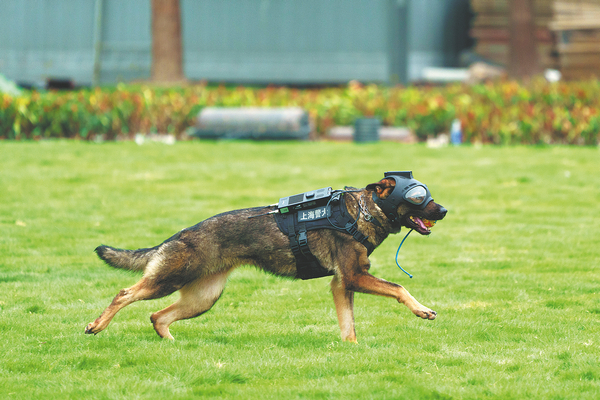Police sniff out true talent for K-9 units


Zhang explains that puppies will go through basic training and testing in various dimensions — their reactions while walking outside and hearing loud sounds like firecrackers, their adaptability to riding in vehicles, their motivation and possession of food and objects, and their level of obedience to the handlers, for instance.
After six months of early training and evaluations, the puppies go into formal training programs based on their features.
The training period may differ from the programs and scenarios where newborn K-9 units are working. It usually takes another three to four months to build drug and explosive detection skills, seven to eight months to adapt to complicated working environments such as railway stations, ports and airports, and more than a year to train a tracking police dog, Zhang adds.
"You must put your emotions, heart and hard work into the training. Training a police dog is sometimes like 'dating', as it requires diverse and changing methods to keep them motivated," says Zhang with a smile.
Over the past three decades, Zhang has handled over 15 police dogs and now handles three K-9 dogs, including a Malinois for tracking, an English Springer Spaniel for blood detection and Henry, the 5-year-old English Springer Spaniel, for drugs and explosives detection.
Zhang's teammate, 29-year-old Zhou Yuanting, handles multiple police dogs too. Graduating from the Criminal Investigation Police University of China in 2017, Zhou handles five K-9 dogs, among which is Lie Huo, a 7-year-old German shepherd who won the manhunt program during the competition.
Normally, a police dog is bound with one handler throughout its service. However, Zhou is Lie Huo's second handler, taking over the energetic police dog when he was 4 years old.
"Lie Huo started serving the police at 2 or 3 years old. He has a strong personality and was not easy to handle. Sometimes he could be a bit too irritable or excited to calm down at work … When I took him over, I made efforts to find the right way to build trust with him and motivate him. For both of us, training is like a game. We play and we train," says Zhou, who, like her other teammates, labels her police dogs as "comrades in arms".




































